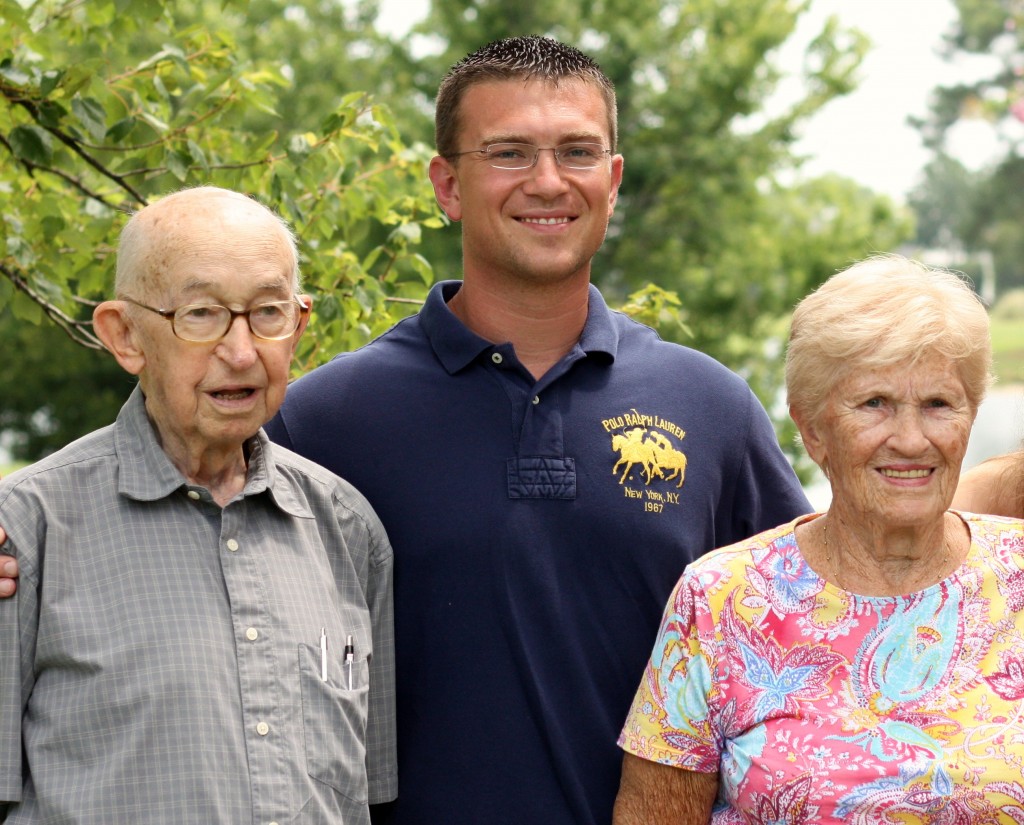 How do atheists get into heaven?
How do atheists get into heaven?
This isn’t the opening line of a bad joke, but rather it’s an eternally important question that we all need to ask.
Yesterday (September 11, 2013) Pope Francis wrote an open letter to Eugenio Scalfari, the founder of the Italian newspaper La Repubblica in which he said, “God’s mercy has no limits if you go to him with a sincere and contrite heart. The issue for those who do not believe in God is to obey their conscience.”
In other words, you can be an atheist, but if you follow your conscience, you can expect God to extend mercy to you and you will be with Him for eternity in heaven.
While I respect Pope Francis’ attempts to further dialogue with people who are not traditionally open to religious conversations, I am deeply saddened by his distortion of truth. The Pope and the Bible do not agree on this all important matter.
Below are a few lessons from the Scriptures that clearly state how an atheist goes to heaven. If you are an atheist, I encourage you to read these verses and ask if God is really there, that He will show Himself to you and lead you into truth.
1. An atheist must recognize that their disbelief in God is foolish.
Psalm 14:1 “The fool says in his heart, ‘There is no God.’…”
There is a God who gave all of us life. Every breath we take is a testimony to His mercy, even if we don’t recognize it. If you’re an atheist, please know that you have a Maker and He says it is foolish for you to ignore that He made you (Psalm 139:13-14) and that He lovingly sustains you (Matthew 5:45).
2. An atheist must recognize that God has graciously given much evidence of His existence in creation.
Romans 1:19-20 “For what can be known about God is plain to them, because God has shown it to them. For his invisible attributes, namely, his eternal power and divine nature, have been clearly perceived, ever since the creation of the world, in the things that have been made. So they are without excuse.”
All of creation is a high-definition testimony of God’s existence and power and beauty. God says that there is no excuse not to believe in Him in light of all He has made. If you are an atheist, please pause and ponder where everything came from and if indeed it is possible that there is a God who did it all to point to Himself.
3. An atheist must recognize that if they try to obey their conscience they will only be condemned.
Romans 2:14-16 “When Gentiles, who do not have the law, by nature do what the law requires, they are a law to themselves, even though they do not have the law. 15They show that the work of the law is written on their hearts, while their conscience also bears witness, and their conflicting thoughts accuse or even excuse them 16on that day when, according to my gospel, God judges the secrets of men by Christ Jesus.”
This is certainly the passage Pope Francis had in mind when he gave hope for people who don’t believe in God. The problem is that even when our conscience becomes a law to ourselves, we break it all the time. Sure there will be instances where our consciences “excuse” us because we avoid things we know we shouldn’t do, but how many times does it “accuse” us!
The reality is that all of us have many strikes against our conscience and that only further shows that we aren’t in good standing with God. The God of heaven is holy and He will not allow evil to remain forever (Habakkuk 1:13). Our conscience doesn’t excuse us ultimately, rather it condemns us before God and shows us that we need Him to forgive us. If you are an atheist, I encourage you to consider the times you have done things you know to be wrong. What if there is a God who really cares about those things?
4. An atheist must realize that they are already condemned before God because they haven’t believed in Jesus.
John 3:18 “Whoever believes in him is not condemned, but whoever does not believe is condemned already, because he has not believed in the name of the only Son of God.”
When we die we do not have to wonder what will happen. God tells us that if we turn from our sin and believe in Jesus, we will be forgiven and not be condemned before God for our rebellions. But if we do not believe in Jesus, we are already condemned because of the ways we have rejected His revelation to us in creation, in our conscience, and ultimately in His Son.
Revelation 21:8 “As for the cowardly, the faithless, the detestable, as for murderers, the sexually immoral, sorcerers, idolaters, and all liars, their portion will be in the lake that burns with fire and sulfur, which is the second death.”
There is no hope for those who do not have faith in Christ. The only thing that awaits them is the eternal judgment of God. This not popular or palatable for many, but it should sober us and cause us to reflect on what the Bible says about eternity. If you are an atheist, please do not allow these warnings to fall on deaf ears. Ask God, if He is really there, to show you what is true.
5. An atheist must turn from their sin and trust in Jesus.
John 3:36 “He who believes in the Son has eternal life; but he who does not obey the Son shall not see life, but the wrath of God abides on him.”
John 14:6 “Jesus said to him, “I am the way, and the truth, and the life; no one comes to the Father, but through Me.”
Acts 4:12 “And there is salvation in no one else; for there is no other name under heaven that has been given among men, by which we must be saved.”
1 John 5:11-12 “And the witness is this, that God has given us eternal life, and this life is in His Son. He who has the Son has the life; he who does not have the Son of God does not have the life.”
How can an atheist get into heaven? Not by denying God or attempting to follow their conscience. Atheists get to heaven by ceasing from their atheism and surrendering to Christ.
We are all sinners in need of a Savior. Jesus Christ is the Savior whom God sent to awaken us from our atheism or sleepy self-righteousness or dead religion. He is God’s only provision for to make us right with Him. There is no other way to heaven other than believing in Jesus. If you are an atheist, please give consideration to whether or not Jesus is who the Bible claims that He was.
If you are a Christian–
Pray for your atheist friends to have soft hearts toward the Lord
Pray for divinely appointed opportunities to talk through the Scriptures with them.
Pray for Pope Francis to have humility before the Scriptures and “not be wise above what is written” (1 Cor. 4:6).
It is only by grace that any of us are saved (Eph. 2:8-10), which should do nothing but produce humility toward God, compassion toward others, and patience with those who do not yet believe in God. It is not however loving or compassionate to tell people that they can go to heaven without believing in Jesus because that is a lie.


